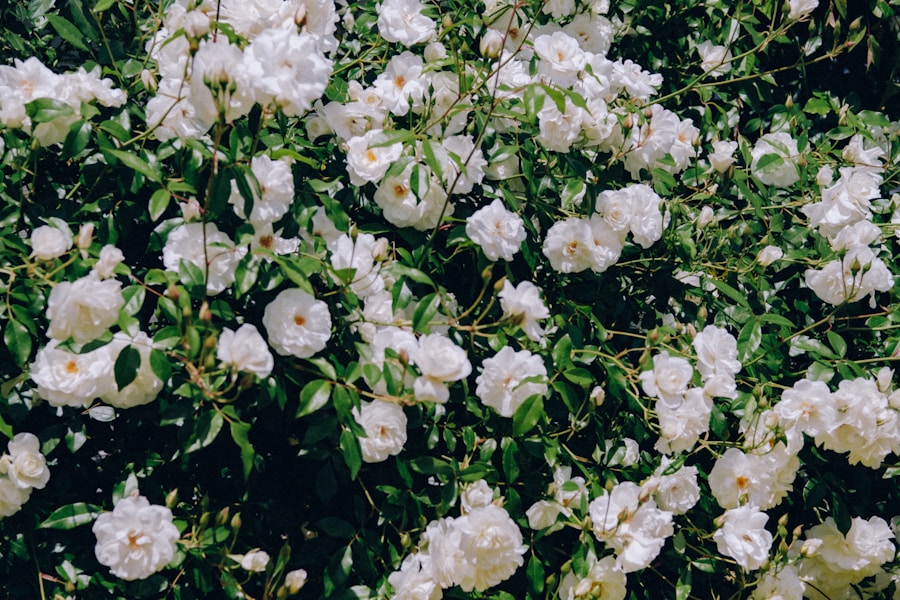ESCAPING THE NARCISSIST
Are you trapped in a toxic relationship? It's time to reclaim your life and find healing. ESCAPING THE NARCISSIST: HOW TO HEAL AND RECOVER FROM NARCISSISTIC ABUSE IN RELATIONSHIPS is your guide to breaking free and starting your journey towards recovery.
Don't let the pain control you any longer. Take the first step today and discover the strategies to overcome emotional abuse and rebuild your life. You deserve happiness and peace.
Start Your Healing Journey TodayFlowers have long been used as a tool for manipulation, and for good reason. Their beauty and fragrance have a powerful effect on the human psyche, and can be used to influence and control others. Whether it’s to create emotional dependency, appear charismatic and charming, or simply to manipulate through gift-giving, flowers have a unique ability to sway people’s emotions and actions. The power of flowers in manipulation lies in their ability to evoke strong emotions and create a sense of connection and intimacy. By understanding the psychological impact of flowers, one can effectively use them as a tool for manipulation.
Flowers have the ability to create a sense of emotional dependency in others. By giving someone flowers, you are not only showing them affection, but also creating a sense of obligation and gratitude. This can be used to manipulate the recipient into doing something they may not have otherwise done. Additionally, the beauty and fragrance of flowers can create a sense of comfort and happiness, making the recipient more likely to comply with the manipulator’s wishes. The power of flowers in manipulation lies in their ability to create a strong emotional bond and influence the recipient’s behavior.
Choosing the Right Flowers for Different Situations
When it comes to using flowers for manipulation, it’s important to choose the right flowers for different situations. Different flowers have different meanings and symbolism, and can evoke different emotions in the recipient. For example, red roses are often associated with love and passion, making them a popular choice for romantic gestures. On the other hand, white lilies are often associated with purity and innocence, making them a good choice for expressing sympathy or condolences. By understanding the meanings and symbolism of different flowers, one can effectively use them to manipulate others in various situations.
In addition to choosing the right flowers for different situations, it’s also important to consider the color and arrangement of the flowers. Bright, vibrant colors can evoke feelings of happiness and excitement, while softer, pastel colors can create a sense of calm and tranquility. The arrangement of the flowers can also have an impact on their meaning and symbolism. For example, a single flower can symbolize simplicity and elegance, while a large, elaborate bouquet can symbolize abundance and extravagance. By carefully choosing the right flowers and arranging them thoughtfully, one can effectively use them as a tool for manipulation.
Using Flowers to Create Emotional Dependency
One of the most powerful ways to manipulate others using flowers is by creating emotional dependency. By giving someone flowers on a regular basis, you can create a sense of obligation and gratitude in the recipient, making them more likely to comply with your wishes. Additionally, the beauty and fragrance of flowers can create a sense of comfort and happiness in the recipient, making them more likely to seek out your company and approval. This can be especially effective in romantic relationships, where the recipient may become emotionally dependent on the manipulator.
Another way to create emotional dependency using flowers is by using them as a reward or punishment. By giving someone flowers as a reward for good behavior, you can reinforce that behavior and create a sense of dependence on your approval. On the other hand, by withholding flowers as a punishment for bad behavior, you can create a sense of guilt and obligation in the recipient. This can be used to manipulate the recipient into complying with your wishes in order to receive more flowers in the future. By using flowers to create emotional dependency, one can effectively manipulate others into doing what they want.
Manipulating Through Gift-Giving: The Art of Flower Arrangements
Gift-giving is a powerful tool for manipulation, and flower arrangements are an art form that can be used to great effect in this regard. The way in which flowers are arranged can have a significant impact on their meaning and symbolism, and can be used to manipulate the recipient’s emotions and actions. For example, a large, extravagant bouquet can create a sense of abundance and extravagance, making the recipient feel special and valued. On the other hand, a simple, elegant arrangement can create a sense of simplicity and elegance, making the recipient feel appreciated and respected. By carefully choosing the right flowers and arranging them thoughtfully, one can effectively use them as a tool for manipulation through gift-giving.
In addition to the arrangement of the flowers, it’s also important to consider the presentation of the gift. The way in which the flowers are presented can have a significant impact on their meaning and symbolism. For example, presenting someone with flowers in person can create a sense of intimacy and connection, while sending them anonymously can create a sense of mystery and intrigue. By carefully considering the presentation of the gift, one can effectively use flower arrangements as a tool for manipulation through gift-giving.
Using Flowers to Appear Charismatic and Charming
Flowers have long been associated with charisma and charm, and can be used to great effect in manipulating others. By giving someone flowers, you are not only showing them affection, but also creating a sense of admiration and appreciation. This can be used to make the manipulator appear more charismatic and charming in the eyes of the recipient. Additionally, the beauty and fragrance of flowers can create a sense of joy and happiness in the recipient, making them more likely to be drawn to the manipulator’s company. By using flowers to appear charismatic and charming, one can effectively manipulate others into seeing them in a more favorable light.
Another way to use flowers to appear charismatic and charming is by using them as a conversation starter. By giving someone flowers as a gift or using them as a topic of conversation, you can create a sense of intrigue and interest in the recipient. This can be especially effective in social situations, where the manipulator may want to make a good impression on others. By using flowers to appear charismatic and charming, one can effectively manipulate others into seeing them as more attractive and desirable.
The Psychological Impact of Flower Symbolism
The psychological impact of flower symbolism is profound and can be used to great effect in manipulation. Different flowers have different meanings and symbolism, and can evoke different emotions in the recipient. For example, red roses are often associated with love and passion, making them a popular choice for romantic gestures. On the other hand, white lilies are often associated with purity and innocence, making them a good choice for expressing sympathy or condolences. By understanding the meanings and symbolism of different flowers, one can effectively use them to manipulate others by evoking specific emotions.
In addition to understanding flower symbolism, it’s also important to consider the recipient’s personal associations with certain flowers. For example, if someone has positive memories associated with daisies from their childhood, giving them daisies as a gift can evoke feelings of nostalgia and happiness. On the other hand, if someone has negative associations with sunflowers from a past relationship, giving them sunflowers as a gift can evoke feelings of discomfort and unease. By understanding the psychological impact of flower symbolism on an individual level, one can effectively use flowers as a tool for manipulation.
The Narcissist’s Guide to Using Flowers for Control and Influence
For narcissists, using flowers for control and influence is second nature. Narcissists are skilled at manipulating others through gift-giving, and flower arrangements are an art form that they excel at using to their advantage. By giving someone flowers on a regular basis, narcissists can create a sense of emotional dependency in the recipient, making them more likely to comply with their wishes. Additionally, narcissists are adept at using flowers as rewards or punishments to manipulate others into doing what they want.
Narcissists also use flowers to appear charismatic and charming in order to manipulate others into seeing them in a more favorable light. By giving someone flowers as a gift or using them as a conversation starter, narcissists can create a sense of intrigue and interest in the recipient. This can be especially effective in social situations, where narcissists may want to make a good impression on others. By using flowers to appear charismatic and charming, narcissists can effectively manipulate others into seeing them as more attractive and desirable.
In conclusion, flowers have a powerful impact on human emotions and behavior, making them an effective tool for manipulation. Whether it’s creating emotional dependency, appearing charismatic and charming, or using flower arrangements for control and influence, understanding the psychological impact of flower symbolism is key to effectively using flowers as a tool for manipulation. However, it’s important to remember that manipulation through gift-giving should never come at the expense of someone else’s well-being or autonomy. It’s important to use this knowledge responsibly and ethically in all interactions with others.


